04 June 2020
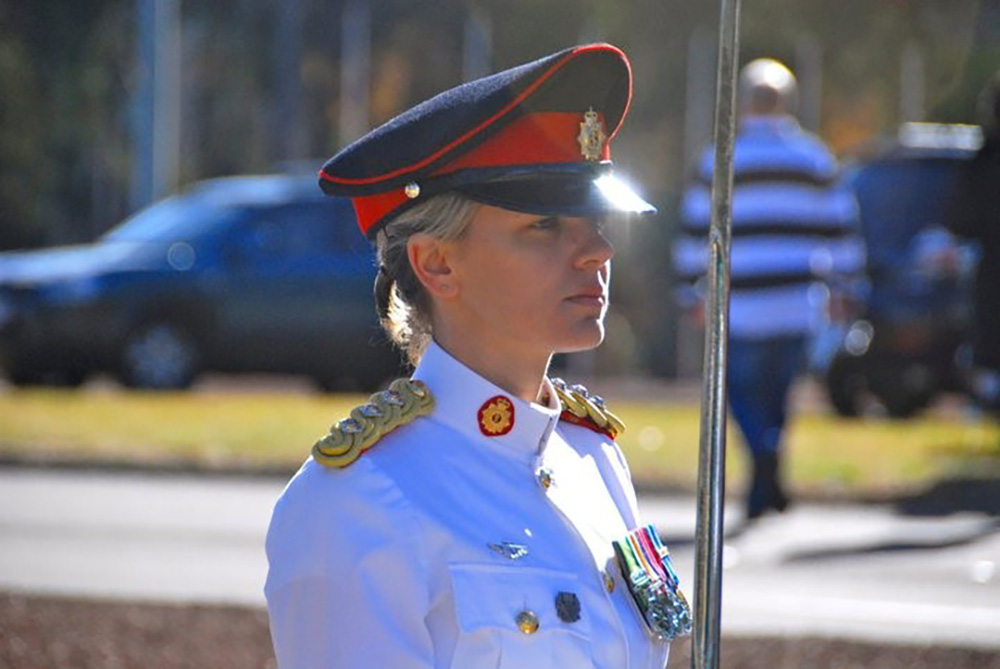
Emma Grigson-Gair
Disaster Preparedness & Resilience, SA Health
Bachelor of Health Science (Health Service Management)
Emma Grigson-Gair always wanted to join the army. Since she was five, growing up in Adelaide’s Northern suburbs, she dreamed of flying M*A*S*H style ‘Huey’ helicopters. She made this her reality when straight out of school she signed up for the Royal Military College, graduating as a pilot in December 2004. Although Emma discovered her heart laid in the medical field and she transferred to Royal Australian Army Medical Corps a couple years later where her University of South Australia Health Science (Health Service Management) degree became a vital tool.
Emma remained as a Medical Officer for the next nine years, supporting various humanitarian missions and outreach programs. This included postings to South East Asia with Malaysian, Thai and Singaporean forces where she trained in jungle warfare, Washington D.C. conducting analysis of disease and unusual health activities across the globe, and Afghanistan with the NATO forces on medical missions implementing telemedicine (distance medicine) programs and women’s clinics, and participating in combat medical patrols.
Below Emma takes us through her incredible career with the Australia Defence Force, her love of learning, and what’s next for her and her family.
1. Could you tell us a little about your career in Australian Defence Force (ADF)? We know you’ve been a part of many outreach programs and medical missions both as a medical officer and in intelligence roles. What does this entail?
I joined the ADF in 2001 straight from school. I was certain that the ADF was the path for me from an early age and I never faltered from this viewpoint. My initial objective was to fly helicopters in support of medical operations, but despite graduating from the Royal Military College - Duntroon into the Aviation Corps; I soon found my interests and heart lay in the medical realm solely.
Throughout my career I was fortunate enough to deploy and support various medical programs – from disaster relief (both nationally and internationally), humanitarian operations, and in the Middle East supporting the growth and wellbeing of thousands of people.
As a General Service Officer (GSO) within the Medical Corps, and later the Intelligence Corps, it was my role to provide leadership, direction and management of my people. To support them, enable them and progress forward with them. I also provided expert advice, so that planning and operations could be carried out with precision.
Watching my two children grow up in the safety of our local community in Adelaide, I’m acutely aware of how critical and essential the work we did in Afghanistan was and around the world.
Every child should have the opportunity to play, learn and laugh without worrying about the evils of war.
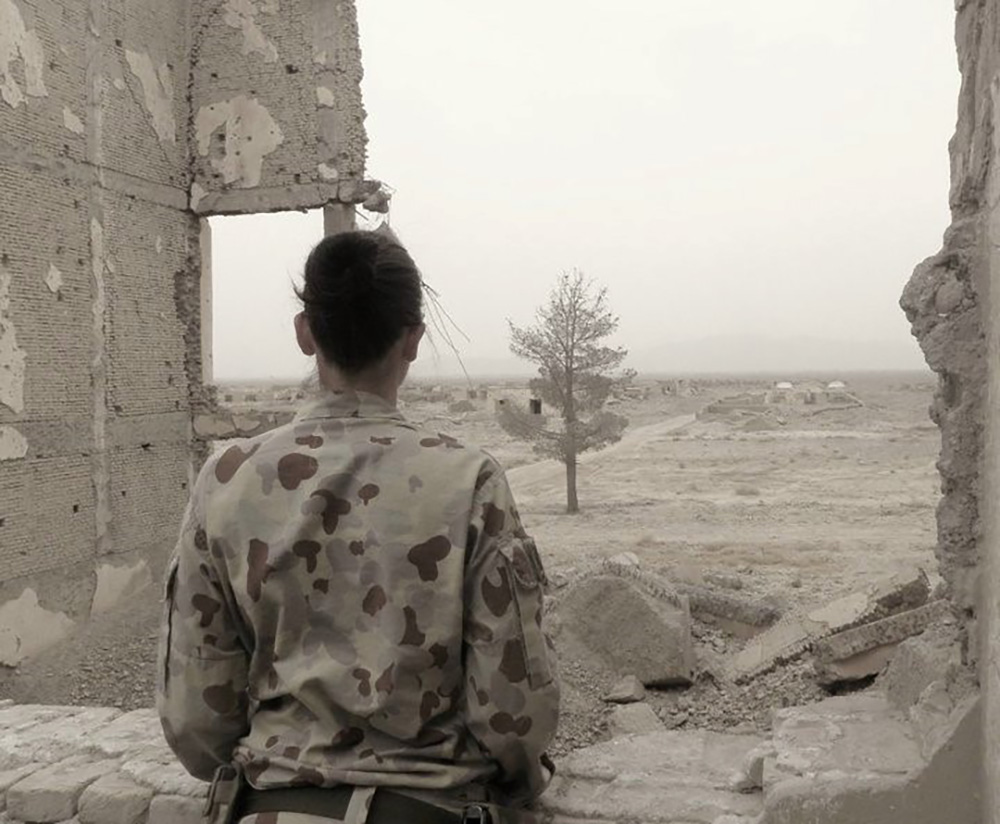
2. Are there any experiences that stand out from your time in deployment or your experiences in South East Asia, Afghanistan, and Washington D.C.?
My job in Afghanistan had been to work on training systems, supply systems and planning support to the Afghan Division operating in Southern Afghanistan. A new training program we implemented resulted in growing trust for our medical staff from coalition forces.
One day, during a patrol, a young American soldier hit by an IED (improvised explosive device) was in danger for his life and under fire, my Afghani medical staff provided the aid that saved his life.
Witnessing their compassion and care for him at that initial point (despite language, religious and cultural barriers) was truly special – I will never forget the sight of his head cradled lovingly in their arms.
Seeing how the medical system came together (his next point for help was a Coalition hospital at a small base filled with colleagues, before finally hitting the massive hospital in Kandahar) to save his life was truly inspiring.
It was a reminder of why I had joined the Medical Corps and the ADF – to help people.
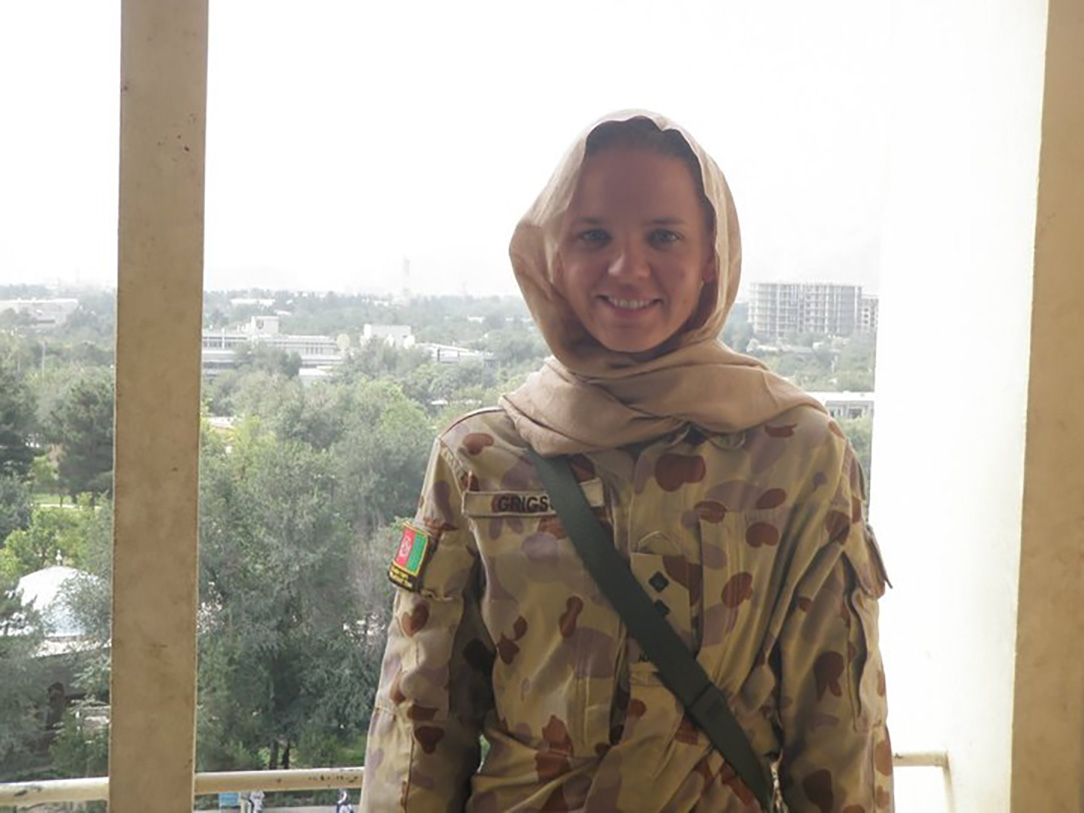
3. Why did you choose to study Health Science (Health Service Management) at UniSA?
As a medical manager, I always ensured that I had an understanding of each and every one of the specialisations that worked with me. I think this is crucial to being successful in the medical field. To manage doctors, for example, does not require you to be a doctor, but you must have an understanding of what this entails. This includes the hardships they face, the challenges, and how you can assist to make the job on the ground easier.
I, therefore, sought learning and ‘hands-on’ opportunities as much as possible as they allowed me a greater breadth of understanding and knowledge.
Studying the Masters of Health Science (Health Service Management) at UniSA was a part of this journey. The breadth of the degree and the insights I gave into the unique challenges facing medical staff have proved essential for me in both my Army career and post-Army career.
Being a good manager is not the same as being a good leader; but understanding how to manage your people in the best way is an essential part of the journey to becoming a good leader.
My Master’s gave me the theoretical knowledge, which I could then implement in my workplace. It improved my management style and enhanced my ability to understand the sector in which I wished to work.
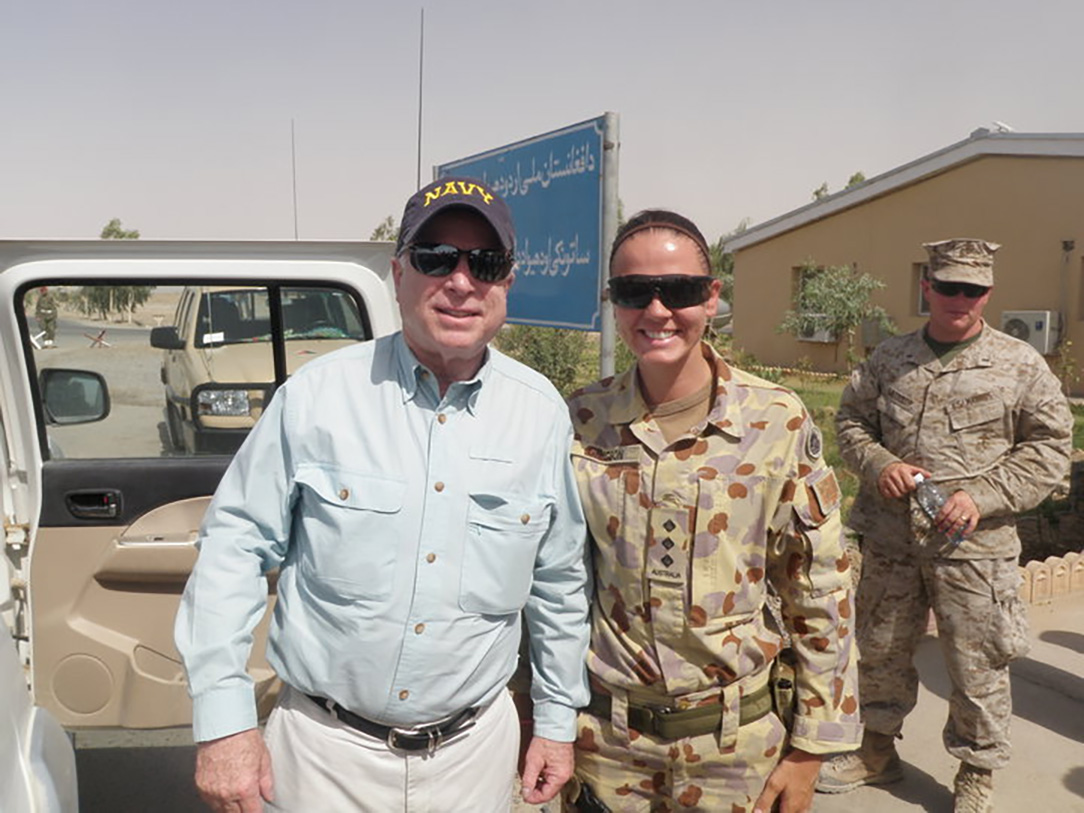
4. You’ve expressed how important education is and why we should never stop having a passion for learning and growth. Could you tell us about this and why you feel this way?
I see learning as a way of growth – and growth is how we live our lives to the fullest. If you aren’t actively learning (from experiences, from university, from reading, etc.) then you have closed your mind to the possibilities of what the next step can be; and that would be incredibly sad.
The most successful people in the world (no matter how you define the term ‘successful’) continuously learn as it develops the minds, stretches boundaries, and builds confidence. I think it is also comforting that a process of continuous learning makes us realise that we don’t yet know it all – both a grounding thought and a challenge!
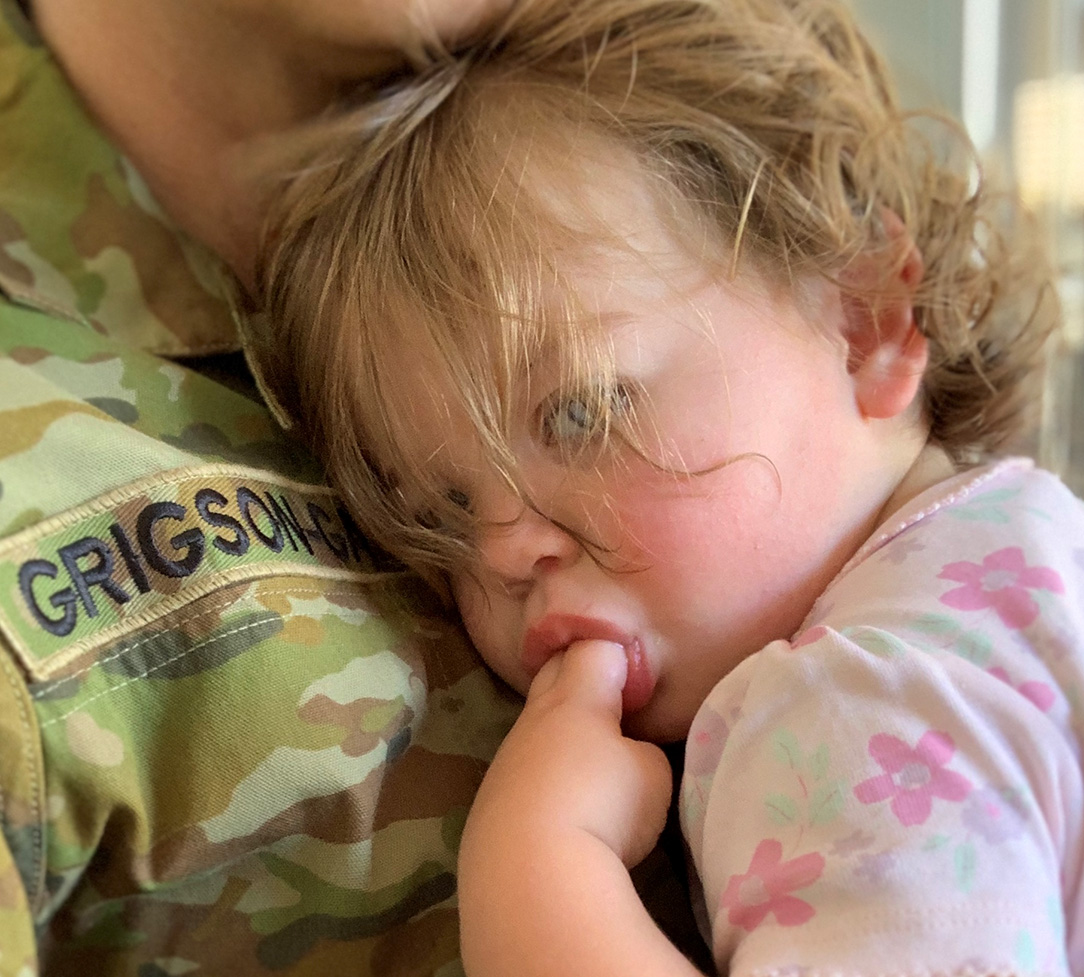
5. What’s life been like since May last year when you officially retired from the Australian Defence Force?
I've worked with SA Health as the Director of Disaster Preparedness and Resilience from 2019; a fantastic team doing amazing work, but an under-resourced capability. The work they do benefits all South Australians and they work as an integral part to the Emergency Management sector in South Australia. I think the recent fires and the pandemic's extreme circumstances are a stark reminder to all that this sector is not only essential, but requires support.
For the most part, life after the ADF is filled with family; reconnecting with my hometown and spending quality time with loved ones. Life after the ADF, presents many challenges and opportunities. I don’t think that anyone who has served has the same journey and therefore understanding what that next step will be takes time and introspection.
Though I may not wear a uniform anymore, the desire to serve still remains. It’s a privilege to be home in Adelaide, I love this city and it’s always been home.




